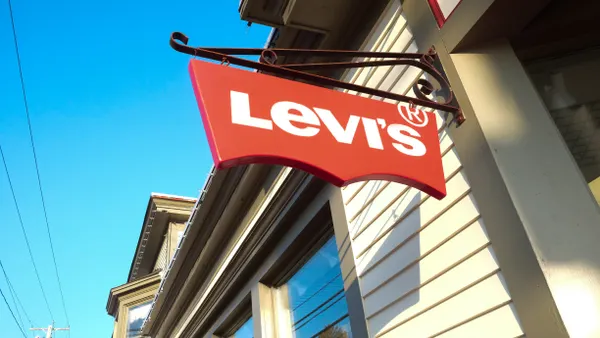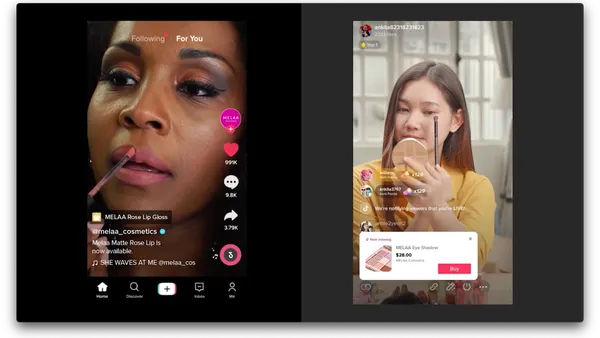Dive Brief:
- Self-reported teen spending has fallen 9% year over year and 5% since this past spring, to $2,150.
- That marks an all-time low in Piper Sandler's semi-annual Generation Z survey, which the firm has conducted for some 20 years.
- According to the survey results, 48% of teens believe the economy is getting worse, a slight increase from the spring and 16 percentage points more than last fall. Nearly a quarter of the cohort reported that COVID-19 had hurt their ability to find work.
Dive Insight:
Along with a general decrease in spending by teens, Piper Sandler's survey data points to category decreases as well. The firm found that spending on cosmetics by female teens is down 20%. Handbag spending fell to an all-time low of $87. At the same time, others are on the rise. Video games overall have gained a higher share of teen wallets, to 10%, an all-time high.
Within categories, individual retailers and brands have jockeyed around. In handbags, Louis Vuitton snagged the No. 1 spot from Michael Kors, and Coach gained share. Ulta, the top beauty retail destination, gained wallet share and now stands at 42%. For the first time in the survey's history skincare spending exceeded cosmetics. Target also gained market share, while Amazon held on to a position in the top five.
Amazon remained the dominant e-commerce destination generally for teens, with 54% saying it was their favorite online retailer. Increasing Prime adoption and the maturing of the Gen Z cohort could boost Amazon for some time to come.
The survey also found that secondhand clothing shopping stands at 8%, making it a major apparel channel for teens as specialty, department store and off-price share fell, according to Piper Sandler. Of those surveyed, 46% said they had bought secondhand items, 58% had sold something secondhand and more than a quarter of teens had used an e-commerce secondhand platform.
Over the next six months the share of teens that plan to visit a retail store is lower, which signals more tough times for indoor malls that are already struggling with persistent foot traffic declines in 2020. Since COVID-19 began its spread domestically, 84% of surveyed teens said they have visited a retailer, but going forward that share dropped to 81%.













